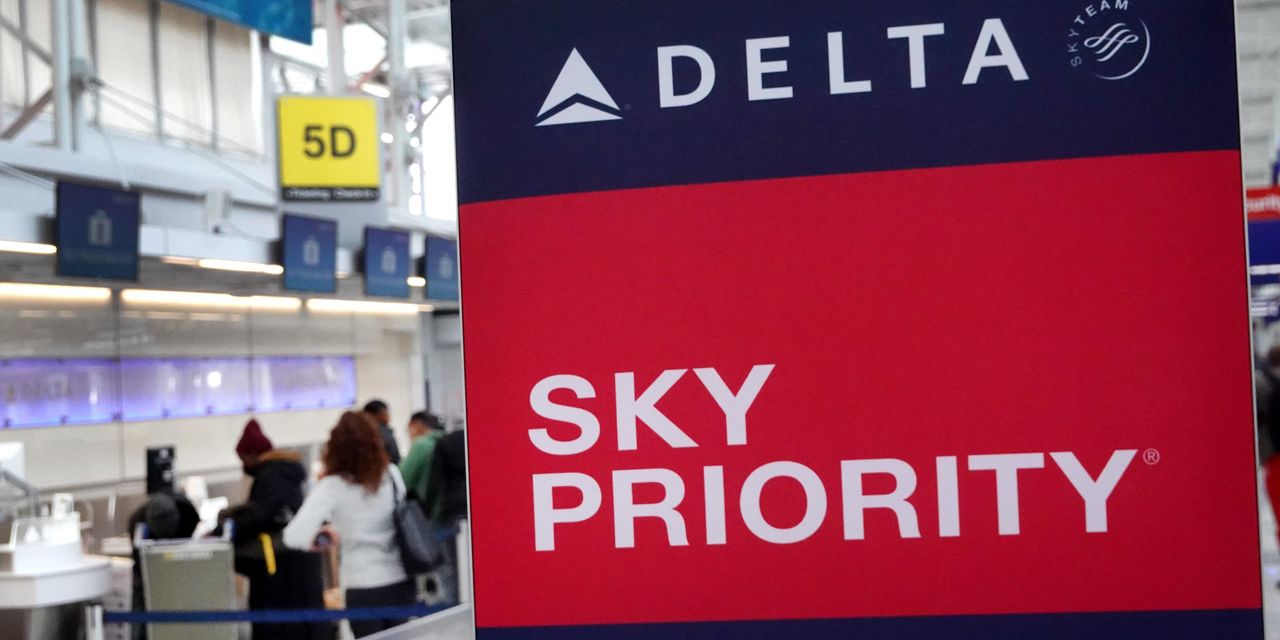Delta Air Lines Inc.’s stock rose 3% Tuesday to put it on track for a 14-month high after the carrier raised guidance for 2023 and backed 2024 targets at an investor day.
Executives described a constructive industry backdrop in a slide presentation with structural demand tailwinds coming out of the COVID-19 pandemic and multi-year supply constraints.
The pent-up demand for air travel that has built since 2020 has not yet been satisfied, employment trends are strong and the shift away from goods and toward services continues.
Supply constraints are real, “but the demand tailwinds are also real and they’re also substantial,” Chief Executive Ed Bastian told analysts, according to a FactSet transcript.
See also: Fourth of July travel will break records, AAA says
Delta cited Federal Reserve data showing leisure travel is the highest priority purchase for high-income households. High-income travelers accounted for 75% of spending on air travel in 2021, that data showed.
Delta
DAL,
is now expecting 2023 per-share earnings to come in at the top of its range of $5 to $6 and for free cash flow to total $3 billion, up from $2 billion previously.
The airline is expecting a return on invested capital of more than 13%, compared with earlier guidance of low double-digit growth. It expects its operating margin to come in at the high end of its 10% to 12% guidance range.
For 2024, Delta is still expecting EPS of more than $7, free cash flow of more than $4 billion, an operating margin of 13% to 15% and ROIC in the mid-teens.
The company also raised its revenue outlook for the June quarter to a rise of 17% to 18% from previous guidance of 15% to 17%. For all of 2023, it expects revenue to climb 17% to 20%, compared with earlier guidance of 15% to 20%.
The company is expecting second-quarter and full-year capacity to be up 17% from the year-earlier period. For 2024, it expects capacity to be up in the mid-single-digits.
It expects non-fuel costs per average seat mile, or CASM, to range from 1% to 3% in the second quarter and to be flat for the year. For 2024, it expects non-fuel CASM to fall by low single digits.
Other items highlighted at the presentation, which will include a TechOps facility tour and panels on delivering operational reliability, customer personalization, and ESG, according to Raymond James, were an update on plans for its fleet.
Delta is retiring Boeing 757-200 aircraft that have 199 seats and replacing them with Airbus 321neo aircraft with 194 seats. It’s also retiring 767-300ER planes with 215 seats and replacing them with A330-900neo craft with 281 seats.
The next-generation craft is 15% to 25% more fuel efficient and comes with lower seat costs and more premium seats.
The stock was up 0.8% premarket and has gained 36% in the year to date, while the US Global JETS ETF
JETS,
has gained 21% and the S&P 500
SPX,
has gained 13%.
Read also: ‘I’m flying first class most of the time’: 5 travel hacks to beat the summer crowds and high prices
Related: ‘Why are clubs so crowded these days?’ Airport lounges have lost their peaceful privilege, are they worth it anymore?
Read the full article here




